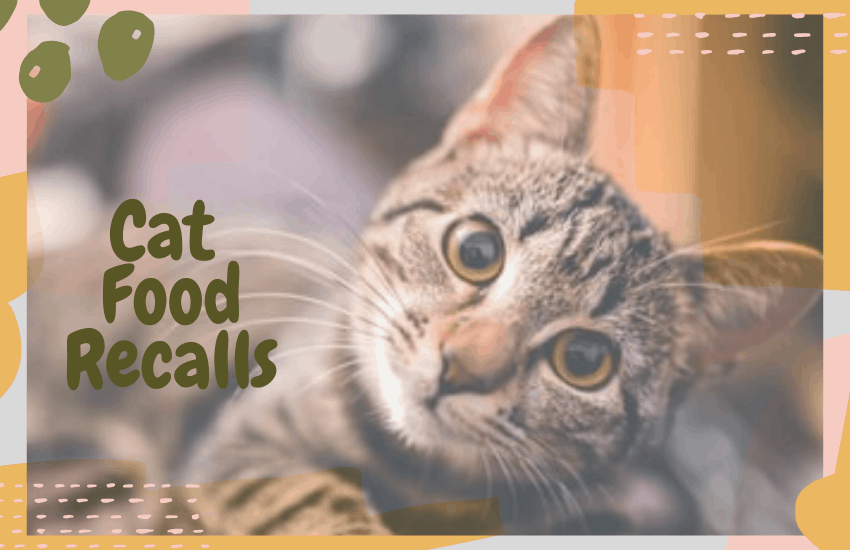
For some cat parents, finding the perfect food to feed their cat is a piece of cake. For others, it can be a stressful, drawn-out process. Cats, just like children, can be extremely picky about what they eat. Finding the perfect food can feel like winning the lottery; that is, until a recall strikes!
In this article, I want to let you know the recent recalls made this year, and later on, you can find out why cat recalls occur, how to know what to do in case you have food that’s already been recalled, and many other things you should have in mind for cat food in general.
Table of Contents
2020 Cat Food Recalls
Natural Balance® Ultra Premium Chicken & Liver Paté Formula Canned Cat Food
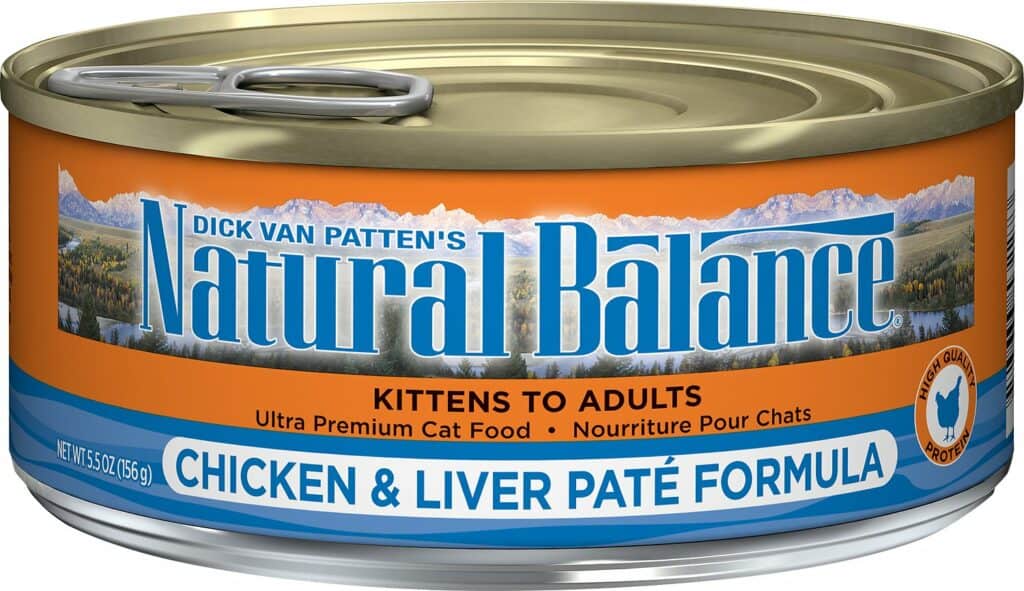
In March 2020, J.M Smucker has recalled the Natural Balance Chicken & Liver Pate Formula due to elevated levels of choline chloride which can cause some serious issues in cats like vomiting, difficulty breathing, cardiac arrest, and potential death.
- The cans that are affected have the following Retail UPC Code: 2363353227/ LOT Code 9217803
None of the other Natural Balance foods are affected.
9Lives Cat Food
The J.M. Smucker Company has made a recall of 2 different 9 Lives Canned cat foods due to potential low levels of thiamine. The following foods are being impacted:
- 9Lives® Protein Plus® With Tuna & Chicken / UPC Code 7910021549/ Best Used: Mar. 27, 2020- Nov.14, 2020
- 9Lives® Protein Plus® With Tuna & Liver/ UPC Code 7910021748/ Best Used: Apr. 17, 2020 – Sept.14, 2020
There have been no reported cases of any illnesses so far, and the low levels of Vitamin B1 were detected in a routine checkup so if you own any of these two foods at home, it’s best to call the company’s number 1-888-569-6828 and get a coupon or a refund.
Cow Pie and Chicken & Vegetables Fresh Frozen Meats for Dogs and Cats
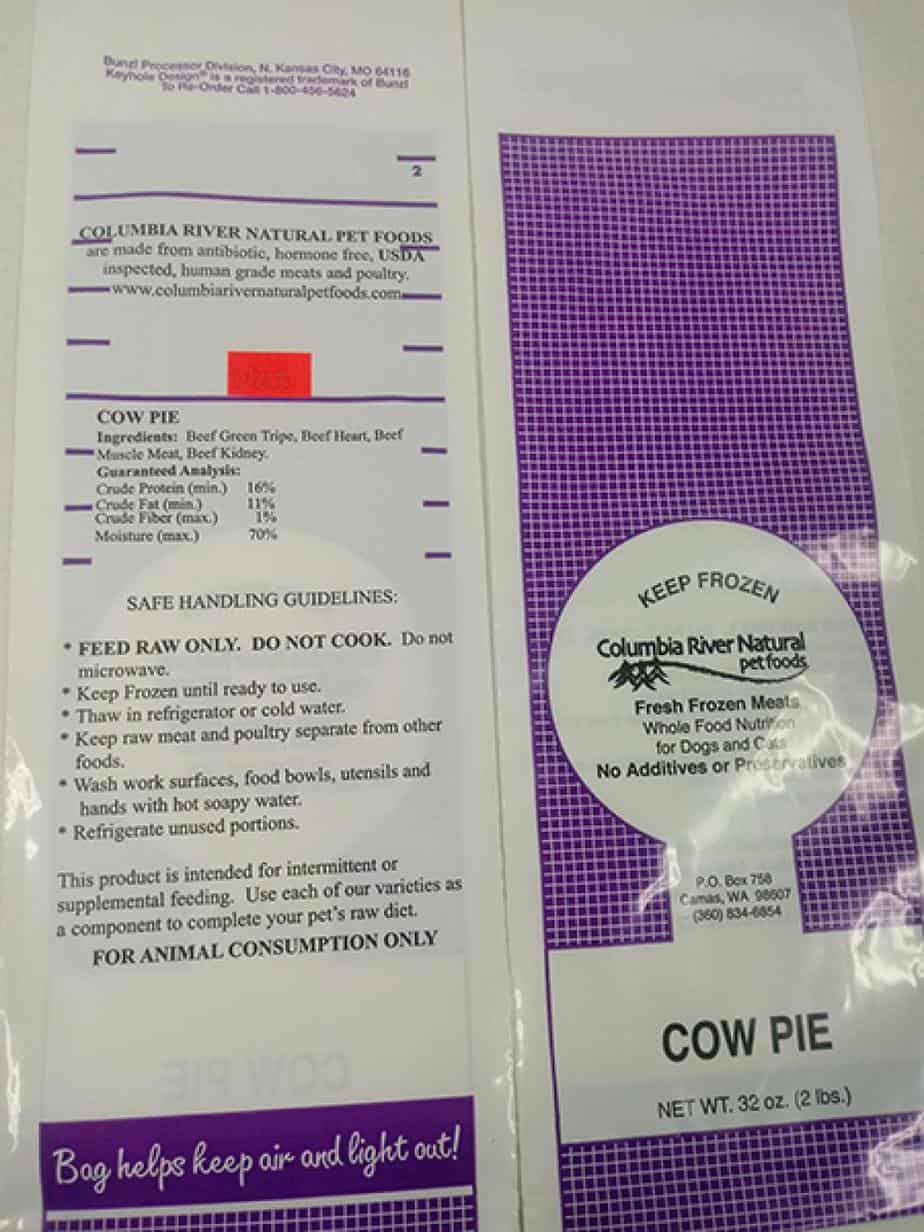
Columbia River Natural Pet Foods Inc. has recalled their Cow Pie Frozen food for Dogs and Cats and Chicken & Vegetables Lot with LOT # 72618 and LOT #111518 due to potential contamination with Salmonella and Listeria monocyte gene which can be dangerous for animals and people who might experience vomiting, nausea, diarrhea or fever.
Rad Cat Raw Diet
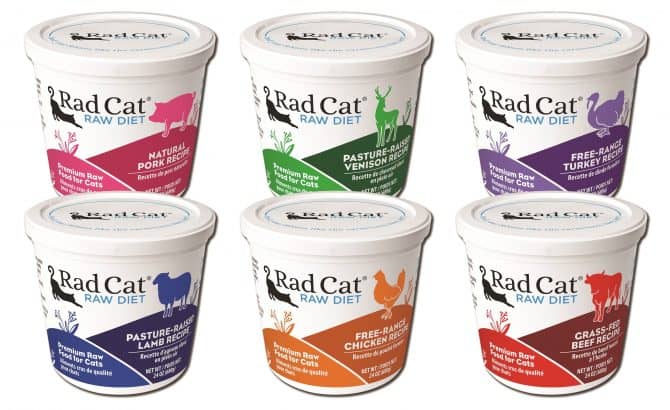
Radagast Pet Food, Inc. has recalled several of their foods which might be contaminated with Listeria monocytogenes.
The following foods are affected:
- Rad Cat Raw Diet Grass-Fed Beef Recipe
- Rad Cat Raw Diet Free-Range Chicken Recipe
- Rad Cat Raw Diet Pasture-Raised Lamb Recipe
- Rad Cat Raw Diet Natural Pork Recipe
- Rad Cat Raw Diet Free-Range Turkey Recipe
- Rad Cat Raw Diet Pasture-Raised Venison Recipe
2019 Pet Food Recalls
Quest Beef Cat Food
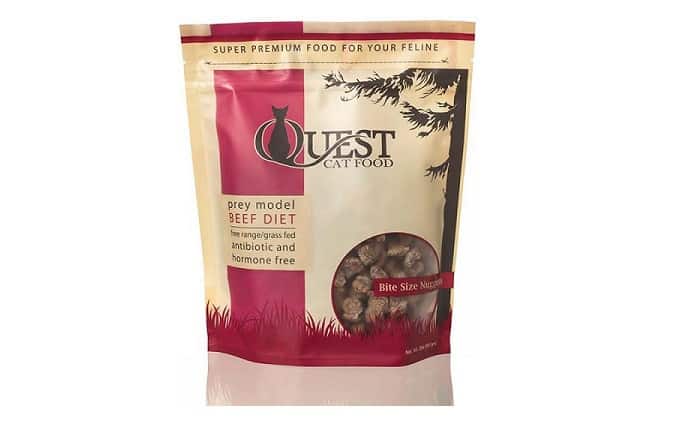
Go Raw, LLC has recalled Quest Beef Cat Food in November 2019 because it might be affected with Salmonella which might cause nausea, vomiting, and fever in cats, but it might be also dangerous to people who have been in contact with the food and have forgotten to wash their hands.
Special Kitty Wet Food
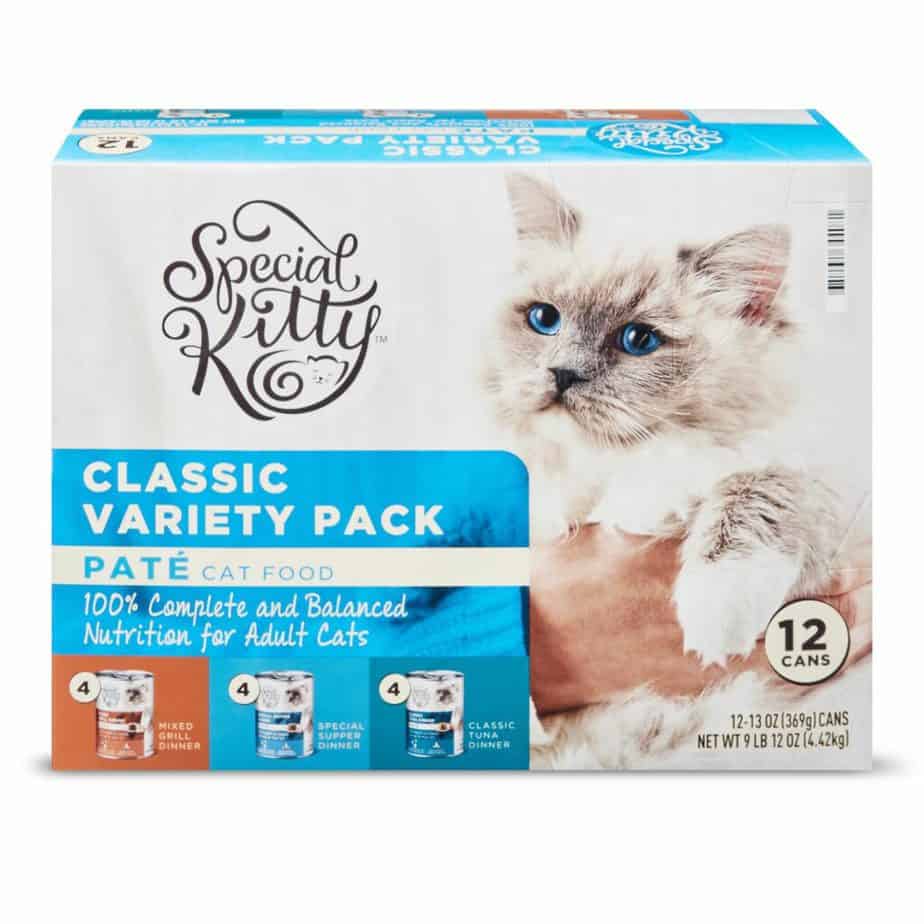
The J. M. Smucker Company has recalled several wet canned foods for cats due to not meeting their company’s standards. Here are the affected foods and their lot numbers.
- Special Kitty® Mixed Grill Dinner Pate 5.5 oz. metal can/ LOT 9263803
- Special Kitty® Surf & Turf Variety Pack of Pate Cat Food in 5.5 oz metal cans/ LOT 9266803
- Special Kitty® Surf & Turf Variety Pack of Pate Cat Food in 5.5 oz metal cans/ LOT 9267803
- Special Kitty® Surf & Turf Variety Pack of Pate Cat Food in 5.5 oz metal cans/ LOT 9287803
Purina Natural Chicken Recipe
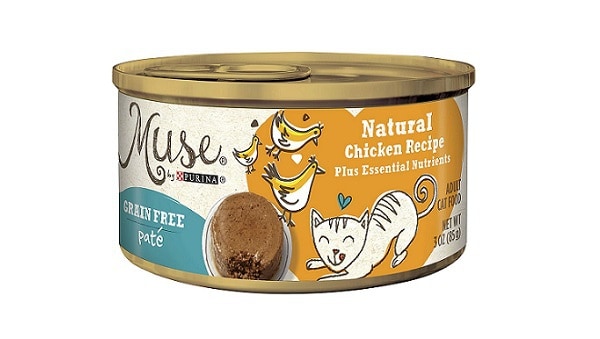
Nestle has recalled their Natural Chicken Recipe in three-ounce cans because they contain rubber pieces that might present a choking hazard. The affected products have Production Code 80941162 and are best by APR2020.
2018 Cat Food Recalls
9Lives, EverPet, and Special Kitty Canned Food
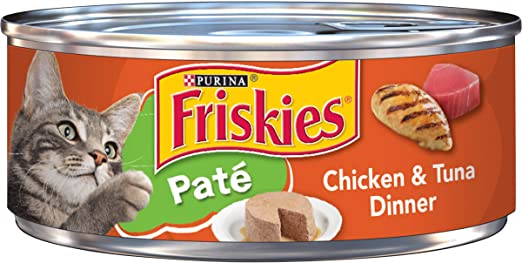
The J.M. Smucker Company made a voluntary recall on several brands they sell of canned wet food due to low levels of Vitamin B1 which is essential for cat’s development and the deficiency might cause some serious issues which start with nausea, decreased appetite or vomiting.
Here are all the affected foods:
9 Lives Brand
- Meaty Pate Seafood Platter/ UPC Code 7910000367/ LOT Number 6356803
- Meaty Pate Super Supper/ UPC Code 7910000286/ LOT Number 6357803
- Meaty Pate Super Supper/ UPC Code 7910052239/ LOT Number 791005222
- Meaty Pate with Chicken and Tuna/ UPC Code 7910000324/ LOT Number 6357803
Meaty Pate Chicken and Tuna/ UPC Code 7910052238/ LOT Number 6354803
- Meaty Pate Seafood Platter/ UPC Code 7910000402/ LOT Number 6356803
- Meaty Pate Seafood Platter/ UPC Code 7910000367/ LOT 6355803
- Meaty Pate Super Supper/ UPC Code 7910000327/ LOT 6358803
- Meaty Pate with Chicken and Seafood/ UPC Code 7910000364/ LOT 6356803
- Meaty Pate with Chicken and Tuna/ UPC Code 7910000324/ LOT 6356803
- Meaty Pate with Chicken Dinner/ UPC Code 7910000410/ LOT 6356803
- Meaty Pate with Liver and Chicken/ UPC Code 7910000312/ LOT 6355803
- Meaty Pate with Ocean Whitefish/ UPC Code 7910000420/ LOT 6358803
- Seafood Poultry Variety Pack/ UPC Code 7910053377/ LOT 6307803
- Meaty Pate with Chicken & Tuna/ UPC Code 7910000366/ LOT 6357803
Special Kitty
- Mixed Grill Dinner with printed wrap/ UPC Code 8113109609/ LOT 6356803
- Super Supper/ UPC Code 8113179041/ LOT 6354803
- Beef and Liver Dinner/ UPC Code 8113112120/ LOT 6355803
- Classic Tuna Dinner/ UPC Code 8113112157/ LOT 6358803
- Mixed Grill Dinner with printed wrap/ UPC Code 811310960/ LOT 6355803
- Super Supper/ UPC Code 8113179041/ LOT 6355803
EverPet
- Mixed Grill Dinner/ UPC Code 7910053114/ LOT 6356803
2017 Cat Food Recalls
Blue Ridge Beef
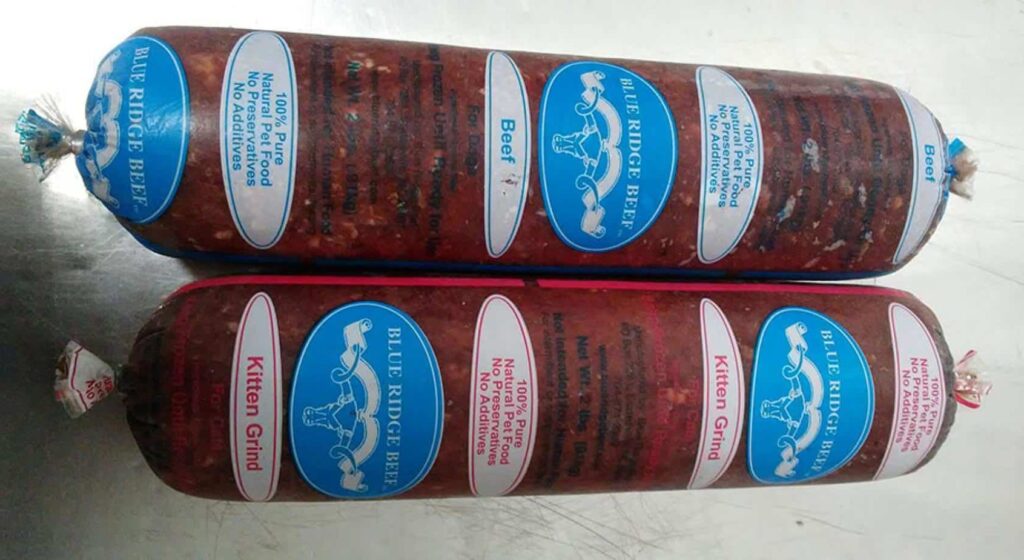
Blue Ridge Beef is recalling their frozen cat meals because they might be affected by Listeria monocytogenes which can affect the animals which have eaten the product, but also people who have been in contact with it. The common symptoms of this infection cause bloody diarrhea, vomiting, nausea, fever, and abdominal cramping.
How Recalls Occur
In the United States, human and pet products are monitored by the Food and Drug Administration (FDA). They’re responsible for ensuring products are safe for human or animal consumption and they, along with manufacturers, continually perform checks for that purpose.
If for some reason, a product is deemed unsafe or contaminated, the product is recalled. When this happens, consumers are notified of the issue with the product and asked to immediately cease using it.
A recall is determined one of three ways:
- A voluntary recall is issued by the manufacturer or company.
- The FDA requests the manufacturer recall a product.
- A recall is ordered by the FDA.
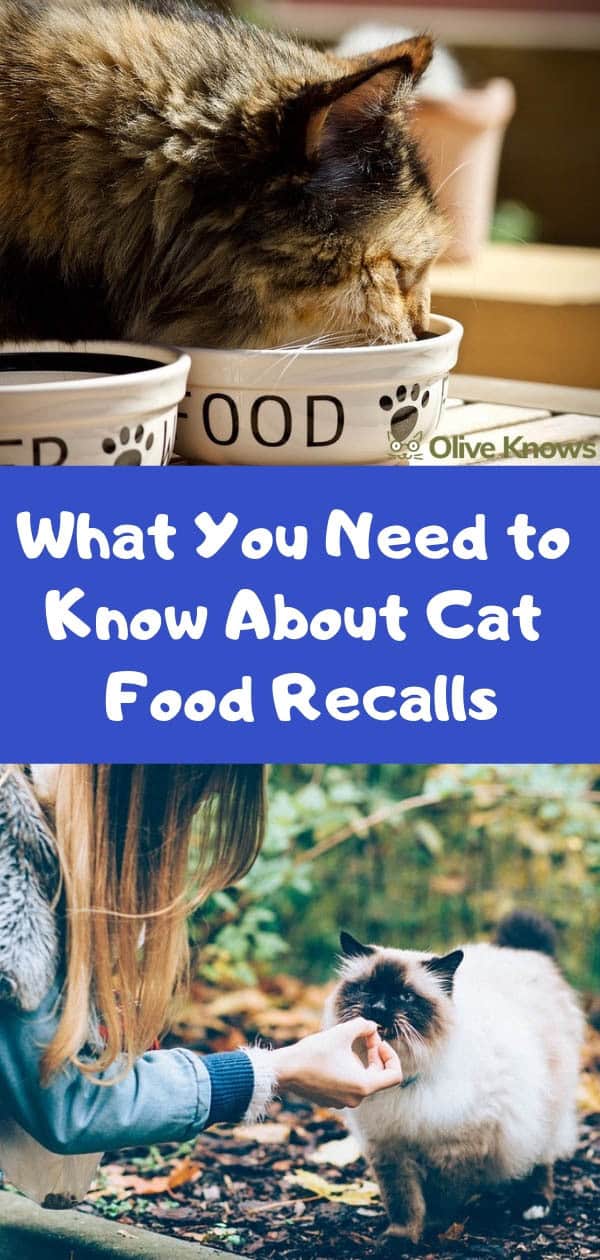
The Manufacturer Issues a Voluntary Recall
Manufacturers perform routine quality tests on batches of their products. If a batch of food or another product appears to be contaminated with bacteria, a foreign object, a potentially toxic substance, or mislabeling on the product, the manufacturer will report that information to the Food and Drug Administration and will issue a voluntary recall of the food.
The FDA Requests a Recall
In some cases, the FDA will request the manufacturer issue a recall for a particular product. This happens when the FDA performs a spot test and finds the food to be contaminated or multiple troubling complaints have been made regarding a particular product.
The FDA Orders the Recall
If the FDA has gathered enough evidence against the manufacturer regarding a contaminated product, they will then demand the company to recall that product.
Does the Quality and Type of Food Matter?
Cat food recalls aren’t limited to high or low-quality foods. Yes, it is possible higher quality food is produced in a more upscale environment than a lower quality of food, but that doesn’t make them immune to the possibility of a recall.
It is just as possible for a high-quality food like Blue Buffalo or Wellness to be recalled due to a mislabeled product or a contaminant as it is a lower quality of food like Meow Mix. So, it’s safe to say food recalls can affect products across the board, regardless of quality and cat parents shouldn’t base their decisions solely on the cost of food.
While quality doesn’t necessarily dictate the likelihood a cat food will be recalled, there are some types of food more prone to contamination than others– for example, raw foods.
Since these foods don’t go through any type of cooking process, they are more likely to contain harmful bacteria and germs such as Salmonella and Listeria which can make both cats and their humans sick.
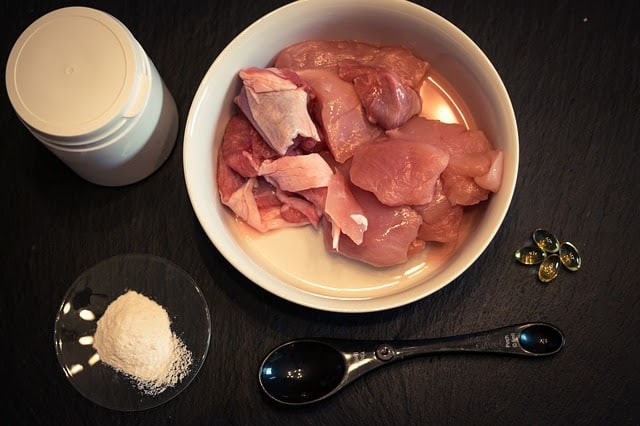
Where to Find Reliable Information About Cat Food Recalls
If an issue regarding the safety or quality of a cat food product has come to light, the company is required to post a notice about the recall on their website. Additionally, a warning is often, though not always, issued through the media for consumers to check their food to determine if it is included in the cat food recall.
Regardless, it is a good idea to get in the habit of checking recall lists to ensure the cat food your kitty consumes hasn’t ended up on the list without you noticing.
The Food and Drug Administration website is an excellent resource when it comes to checking for current and past cat food recalls. The truly great thing about the FDA’s recall is list is the archives go as far back as 2007, so cat parents looking to do thorough research on the food they feed their cat will be able to get a larger grasp on whether or not a particular product has a history of being recalled.
The American Veterinary Medicine Foundation is another great place to check for recall information, though the recall list only contains a year’s worth of information. Forgetful cat parents can also sign up to get recall alerts from Petful which will notify them any time a new recall has been issued. Their archives also consist of three years of recalled product information.
What to Do If Your Cat Food is Recalled
Finding out you’ve been feeding your cat food that has been contaminated can be extremely scary. Knowing what to do if it does happen will go a long way in keeping you cool, calm, and collected. Here’s what to do if a recall has been issued for your brand of cat food.
Examine the Cat Food Package
It’s important to note when a type or brand of cat food has been recalled, the bag you have may not actually be included in the recall. This happens because when the food is manufactured, it’s made in smaller batches, also known as lots.
To help cat parents know if the food they have on hand is included in the recall, the manufacturer will release identifying information, which will be on the packaging of the cat food. Cat parents can then compare this information with what is on the bag of food to determine if it is part of the recalled batch.
These identifiers include:
- UPC/barcode number
- Best by date
- Lot/batch number
- Package sizes that may be affected
Stop Feeding Your Cat the Recalled Food
If the bag of food matches any of the identifiers the manufacturer provided, stop feeding her the contaminated food immediately. Under normal circumstances, veterinarians wouldn’t recommend a sudden change in your cat’s diet because it can cause gastrointestinal distress.
In this case, however, eliminating the contaminated food from her diet immediately is the best way to reduce the chance she will become sick due to the recalled food.
One way to make the transition to new food easier is to mix in a small amount pumpkin puree (not pumpkin pie mix) for a few days. This will help ease any gastrointestinal discomfort she may experience.
Call the Manufacturer
While you’ll most likely get an answering machine due to a high volume of calls regarding the recalled food, you should file a report with the manufacturer.
This will help them determine the extent of the affected food. Filing a report will also benefit you if your cat gets sick as a result of the contaminated food.
When most recalls occur, the manufacturer will refund the cost of the food and in some cases, will also refund the cost of any vet bills incurred from the contaminated food.
Keep a Small Sample of the Recalled Food
You should get rid of the recalled food immediately, but keeping a small sample may be useful down the road. Store a small batch, such as a cup or two, in an airtight container in the freezer.
If your cat ends up exhibiting signs of illness, your vet may want to run tests on the recalled food to determine how it is affecting your cat and what course of action will be best in terms of treatment.
It is also beneficial to take a photo of the packaging because it will provide proof to the manufacturer if she develops an illness as a result of the contaminated food.
Watch for Signs of Illness
When the recall is issued, the manufacturer will provide information regarding the outcomes related to cats who have ingested the contaminated food.
This includes which body functions may be affected, as well as the signs and symptoms cat parents should keep an eye out for. If your cat has been eating the affected food, being vigilant about unusual behaviors or symptoms is an important part of getting your cat immediate treatment.
Don’t hesitate to call your veterinarian if something seems off about your cat; getting immediate treatment can only benefit her if she becomes ill.
Should Past Recalls Play a Part When Choosing a Cat Food?
If you’ve gone through a cat food recall or any recall for that matter, you may be hesitant to continue using that specific brand or product. While this is understandable and a personal choice, it should be noted most brands work diligently to rectify the situation.
Once they become aware of a problem, they work tirelessly to ensure the proper steps are taken to prevent a similar situation in the future.
That being said, having an awareness of brands that have been subjected to recall will help you make informed decisions regarding what your cat eats.
If a brand has experienced frequent recalls over a short period of time it is probably a good idea to stay away from that food. Likewise, raw foods are much more likely to be contaminated so it is worth considering taking her off of a raw food diet to limit risks.
As cat parents, it is our duty to ensure our beloved fur babies are getting the best quality care and that extends to the food they are eating. That’s why being aware of cat food recalls is important.
Knowing if there is an issue with your selected cat food brand will allow you to take care of the problem immediately and protect your cat from getting sick.
Continue reading:
Blue Buffalo vs Blue Wilderness Cat Food Compared
Purina Pro Plan vs Blue Buffalo Cat Food Compared: Which is Best?


Leave a Reply